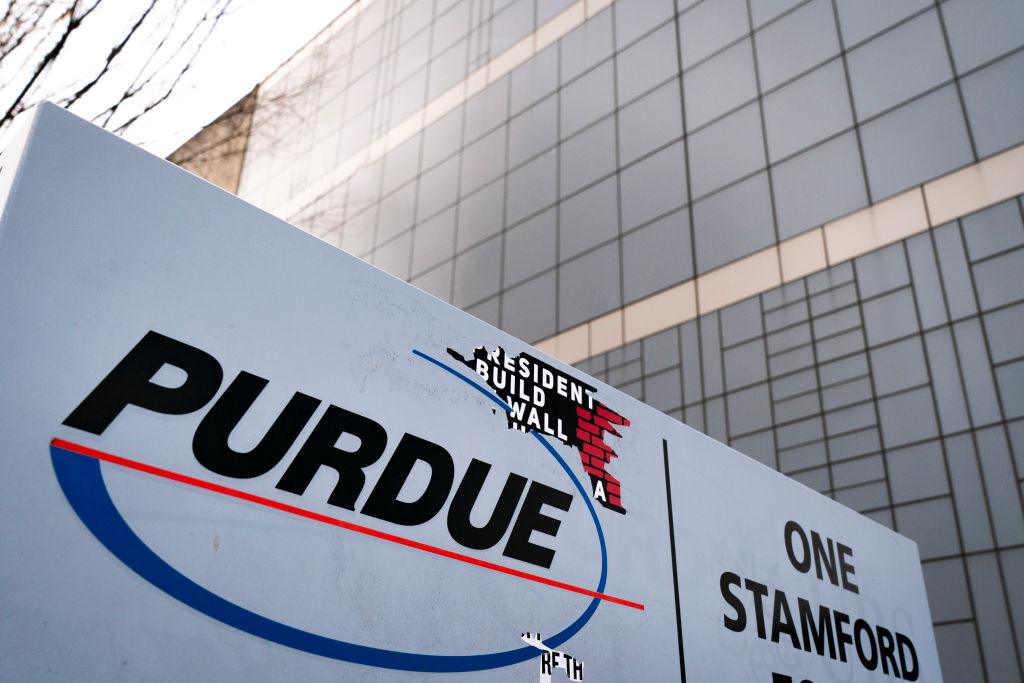Uncovered Sackler family wire transfers are raising eyebrows


A free daily email with the biggest news stories of the day – and the best features from TheWeek.com
You are now subscribed
Your newsletter sign-up was successful
The New York attorney general's office in a court filing Friday said it uncovered about $1 billion in wire transfers by the Sackler family, the owners of pharmaceutical giant Purdue Pharma.
The discovery comes after thousands of municipal governments and 23 states tentatively reached a settlement with the Sacklers and Purdue, which manufactures OxyContin, over the company's alleged role in the opioid crisis plaguing the United States. The transfers have raised speculation that the Sacklers could have been trying to hide assets while facing litigation.
The attorney general's office only presented initial findings, and its major discovery was from 2009, long before the lawsuits began. But the filing said they identified "previously unknown shell companies" that Mortimer Sackler used to move Purdue money through international accounts before concealing it in real estate investments. A spokesman for Mortimer Sackler said there was nothing "newsworthy" about the "decade-old" transfers.
The Week
Escape your echo chamber. Get the facts behind the news, plus analysis from multiple perspectives.

Sign up for The Week's Free Newsletters
From our morning news briefing to a weekly Good News Newsletter, get the best of The Week delivered directly to your inbox.
From our morning news briefing to a weekly Good News Newsletter, get the best of The Week delivered directly to your inbox.
While it would reportedly be difficult to unveil the family's true international wealth, some legal experts do think the findings could spell bad news for the Sacklers. "The bigger question is how this is going to affect what many cities have already agreed to," Adam Zimmerman, an expert in complex litigation at Loyola Law School, Los Angeles, said, referring to the tentative settlement. "We might see, with these allegations, more state [attorneys general] saying they are opposed to it, and maybe even some cities."
Elizabeth Burch, a professor at the University of Georgia Law School, told The New York Times the findings should give those states objecting to the settlement "more wiggle room" to argue for more disclosure, which "could lead to criminal exposure for the Sacklers." Read more at The New York Times and NBC News.
A free daily email with the biggest news stories of the day – and the best features from TheWeek.com
Tim is a staff writer at The Week and has contributed to Bedford and Bowery and The New York Transatlantic. He is a graduate of Occidental College and NYU's journalism school. Tim enjoys writing about baseball, Europe, and extinct megafauna. He lives in New York City.
-
 Crisis in Cuba: a ‘golden opportunity’ for Washington?
Crisis in Cuba: a ‘golden opportunity’ for Washington?Talking Point The Trump administration is applying the pressure, and with Latin America swinging to the right, Havana is becoming more ‘politically isolated’
-
 5 thoroughly redacted cartoons about Pam Bondi protecting predators
5 thoroughly redacted cartoons about Pam Bondi protecting predatorsCartoons Artists take on the real victim, types of protection, and more
-
 Palestine Action and the trouble with defining terrorism
Palestine Action and the trouble with defining terrorismIn the Spotlight The issues with proscribing the group ‘became apparent as soon as the police began putting it into practice’
-
 Trump HHS slashes advised child vaccinations
Trump HHS slashes advised child vaccinationsSpeed Read In a widely condemned move, the CDC will now recommend that children get vaccinated against 11 communicable diseases, not 17
-
 A fentanyl vaccine may be on the horizon
A fentanyl vaccine may be on the horizonUnder the radar Taking a serious jab at the opioid epidemic
-
 Nitazene is quietly increasing opioid deaths
Nitazene is quietly increasing opioid deathsThe explainer The drug is usually consumed accidentally
-
 FDA OKs generic abortion pill, riling the right
FDA OKs generic abortion pill, riling the rightSpeed Read The drug in question is a generic version of mifepristone, used to carry out two-thirds of US abortions
-
 RFK Jr. vaccine panel advises restricting MMRV shot
RFK Jr. vaccine panel advises restricting MMRV shotSpeed Read The committee voted to restrict access to a childhood vaccine against chickenpox
-
 The UK’s opioid crisis: why the stats don’t add up
The UK’s opioid crisis: why the stats don’t add upThe Explainer A new report has revealed that the UK’s total of opioid-related deaths could be much greater than official figures show
-
 Texas declares end to measles outbreak
Texas declares end to measles outbreakSpeed Read The vaccine-preventable disease is still spreading in neighboring states, Mexico and Canada
-
 RFK Jr. shuts down mRNA vaccine funding at agency
RFK Jr. shuts down mRNA vaccine funding at agencySpeed Read The decision canceled or modified 22 projects, primarily for work on vaccines and therapeutics for respiratory viruses
